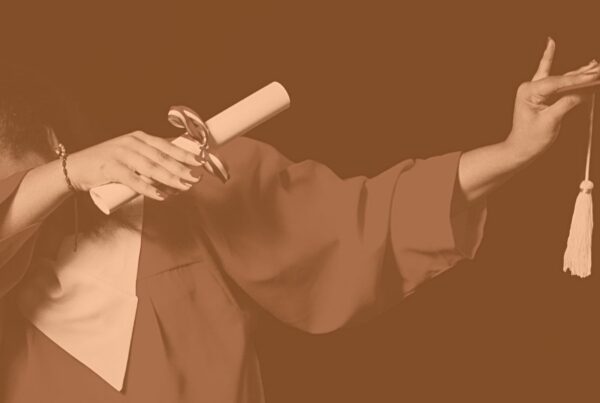Our conversation today comes from a question sent in by one of our listeners named Genesis. She asked, “Why do event marketers receive more credit and respect than event planners?”
Event marketers and event planners do, in fact, often receive credit, financial support, and recognition differently, which makes this an excellent question. As the Brew Crew will discuss, the reasons for this difference in treatment are complicated and can vary from person to person and company to company.
In this episode of the Event Brew, Deanna, Will, and Nick will share how they define these roles, the tasks they associate with each, the risks involved, and how you can work to ensure you’re given the credit and respect you deserve. Let’s dive right in!
Defining the Roles: Event Marketer vs. Event Planner
There can be a lot of overlap between roles in the events industry, especially among event planners and marketers. That influences Deanna’s description of the roles. “A common gripe is the generalization of our field,” she says. “I did a talk at MPIs WEC last year about building your career as an event professional. If you look at the Certified Meeting Professional fields of study, you have marketing, HR, and finance. People spend their entire careers in these fields, and event professionals are expected to dabble in all of them well. In my opinion, there really isn’t a huge difference between an event planner and an event marketer.”
Will disagrees. “If I describe myself as an event marketer, I’m solely doing events for marketing purposes. Whereas an event planner could be doing events, and who cares if I’m marketing the brand well? I think an event planner is more logistics and design oriented while event marketers are concerned about the company’s marketing goals.”
With such blurred lines, Nick explains how he draws a more precise definition of how and when event planners and marketers participate in an event’s different phases. “I got indoctrinated in the merits school of thinking, so in that, there are phases of an event. There’s announcing, attraction, anticipation, arrival, enter, engage, exit, and extend,” he explains. “The event marketer is responsible for announcing, attracting, and anticipation. The planner has arrival, enter, engage, exit, and extend. They work hand in hand. But this is in a world where these are defined, and different people wear different hats. My gut says there’s a lot of blur in many organizations.”
Deanna likes that distinction and raises another interesting point about how a company can impact the roles’ description. “One thing percolating in the back of my head is job descriptions,” she says. “I just started a new job five months ago, and I was looking at a lot of job descriptions. I applied for a lot of event marketing jobs because there’s a lot of overlap underneath the title.”
“For example, I worked with a client last year, and their titles were event marketers,” continues Deanna. “75% of the events they did were internal. There was no audience acquisition, and there was no external brand. They were just in the marketing department, and they were the event people, but their role was largely logistics. It’s definitely a ‘yes and…’ situation.”
 Why are Event Marketers More Respected than Event Planners?
Why are Event Marketers More Respected than Event Planners?
Deanna brings us to the next question in today’s discussion. Why the difference in respect? “If we’re looking at event marketing and planning, and they’re somewhat analogous, why is one perceived with more respect and even more pay?”
Not only can job descriptions vary from person to person and company to company, but they can also change based on the type of event people are planning. “When I think of event marketer versus event planner, for me, it’s the type of event they’re planning too,” says Will. “Event marketers are producing events inside of other events in a lot of ways. For example, the top event marketing agencies are all producing mini-events inside San Diego ComicCon. I think the reason they get so much attention and love is not anything related to skills but that they’re playing on this public playing field.”
Deanna agrees. She thinks visibility is a critical contributor to perception. “People don’t understand what planners do. They immediately want to correlate us with wedding planning.”
Creativity can also be critical in how roles are respected and credited for their work. “If you can create new opportunities, and that comes from the ability to be creative, then you become invaluable to an organization,” explains Nick. “ If you can leverage your creativity because black-and-white numbers are attached to it, then you get respect.”
He continues: “I think for the planner, it’s harder because there are so many aspects of the job that are less creative. Whereas I can think of event marketers in charge of creative designs, they get the lion’s share of the positives. The negatives really just come in the execution. They’re like, ‘Oh, this is a great idea,’ and then they pass it off to the planner, who can meet those expectations or not. That’s the part that I think is unfair. A marketer basically gets to come up with the solution to a problem, and the concept is rarely audited while the execution frequently is.”
One way to combat the typical flow of events is to get ahead. Speak up and put yourself into conversations that will help you establish your ability. “There was this great episode of Bizbash’s interview series where the interviewee mentioned that she wanted her team to go from the executors of ideas to being plugged into strategy,” says Deanna. “She talked about prompting them to not wait for directions from the C-suite but rather, to get out and put their ideas in front of people before they can even think to task down these events.”
Deanna continues: “It made so much sense because a lot of times we are on the back half. We’re not at the beginning in talks of strategy. Often, we are at the end, executing other people’s ideas.”
Nick agrees. He leaves us with some excellent final advice. “If you’re not part of the inception of an idea, you’re never going to be at the table,’ he says. “If any position within an organization isn’t taking your experience, viewpoints, and creative mindset into consideration before whatever is made, then you don’t have an equal seat at the table. Jockeying for that position and getting there will earn you the respect you need.”
Final Thoughts
There could be any number of reasons why you might receive less respect than your colleagues or less credit than you deserve. If you’re observing this within the same organization, try speaking up and sharing your creative thoughts and experience in the creative stages of event planning. It may be that people don’t see your potential. If you know that event marketers earn more respect and credit in other organizations, their company structure may have something to do with it. They might even have a completely different job description.
Have different thoughts? We want to hear from you. What’s your experience been? Email us. We always read your responses. And again, a big thanks to Genesis for sending us her question. We appreciate each of you for keeping the conversation going. We’ll catch you here next time on the Event Brew!








